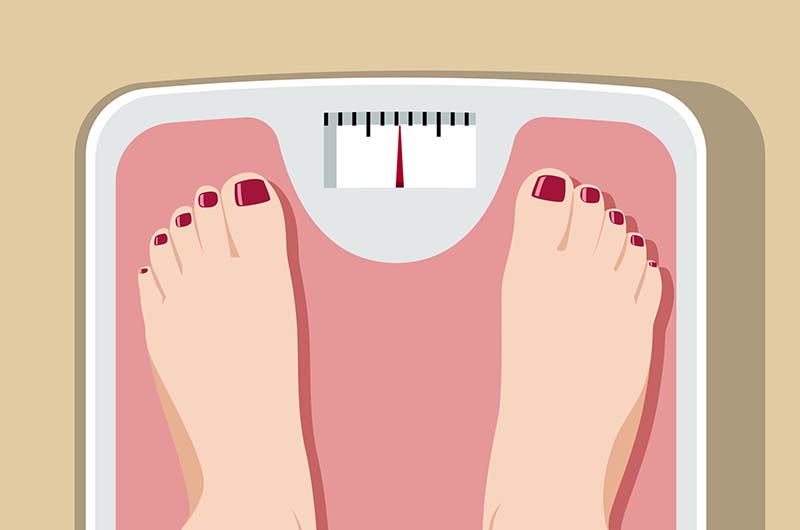Why losing weight matters — even if you gain some back

If you’ve ever struggled to keep the weight off after losing it, you’re not alone. Research shows that in the United States 80% of lost weight is regained within five years. But could losing weight be worthwhile, even if you gain some back? A review of over 100 studies found that intensive behavioral weight loss programs can lead to lasting health benefits, even if some weight is regained.
People with obesity or excess weight face a higher risk of high cholesterol and high blood pressure, which can lead to cardiovascular disease. They are also more likely to develop insulin resistance, a condition that can progress to Type 2 diabetes. Behavioral weight loss programs support weight loss by promoting healthy lifestyle changes, such as eating nutritious foods and staying physically active.
But maintaining a healthy weight can be a struggle. Doctors and patients often worry that regaining weight makes the effort to lose it seem futile, according to Susan A. Jebb, co-senior author of the study. “This concept has become a barrier to offering support to people to lose weight,” she said. Jebb, a diet and population health professor at the University of Oxford, emphasized that the study should reassure people that weight loss programs effectively control cardiovascular risk factors and are likely to reduce cardiovascular disease risk. The analysis reviewed 124 studies involving over 50,000 participants, comparing those who participated in intensive weight loss programs with those in less-intensive or no programs. On average, participants had a body mass index (BMI) of 33 and a median age of 51.
Across the studies, participants typically lost 5 to 10 pounds, with an average yearly regain of about a quarter to three-fourths of a pound. Participants in intensive programs showed better blood pressure and cholesterol levels than those who didn’t participate. They also experienced improved diabetes markers that lasted for at least five years.
On average, participants in the intensive programs experienced:
- Improved blood pressure: Systolic blood pressure (the top number) dropped by 1.5 mmHg one year after the program and remained 0.4 mmHg lower five years later.
- Better diabetes markers: HbA1c levels, a measure used to diagnose and monitor diabetes, came down by 0.26% at both one year and five years.
- Healthier cholesterol levels: The ratio of total cholesterol to HDL (the “good” cholesterol) improved by 1.5 points at both one year and five years.
The analysis’s preliminary findings suggest the reduced risk of developing cardiovascular disease or Type 2 diabetes may persist even after some weight is regained. However, according to Jebb, few studies in the analysis tracked participants beyond five years. So, more research is needed to confirm whether this benefit lasts over time. The analysis also did not include studies published after 2019.
In an editorial accompanying the study, Dr. Vishal N. Rao and Dr. Neha J. Pagidipati from Duke University School of Medicine praised the research while highlighting the need to further understand different weight loss approaches. They pointed out that behavioral weight loss programs are the cornerstone of clinical weight management but are often resource-intensive, while newer medication therapies come with high costs.
“The present study has interesting implications for the impact of weight regain that may occur after pharmacologic therapies,” they wrote. “What remains unclear is whether the temporary improvements in weight and cardiometabolic risk factors after weight loss interventions — whether behavioral or pharmacological — translate into long-term clinical benefits. In other words, is it better to have lost and regained than never to have lost at all?”
Losing weight isn’t always a straight path, and setbacks, such as regaining some pounds, are part of the process for many. As the research findings suggest, it’s not about perfection — it’s about progress, proving that the journey to better health is always worth taking.





